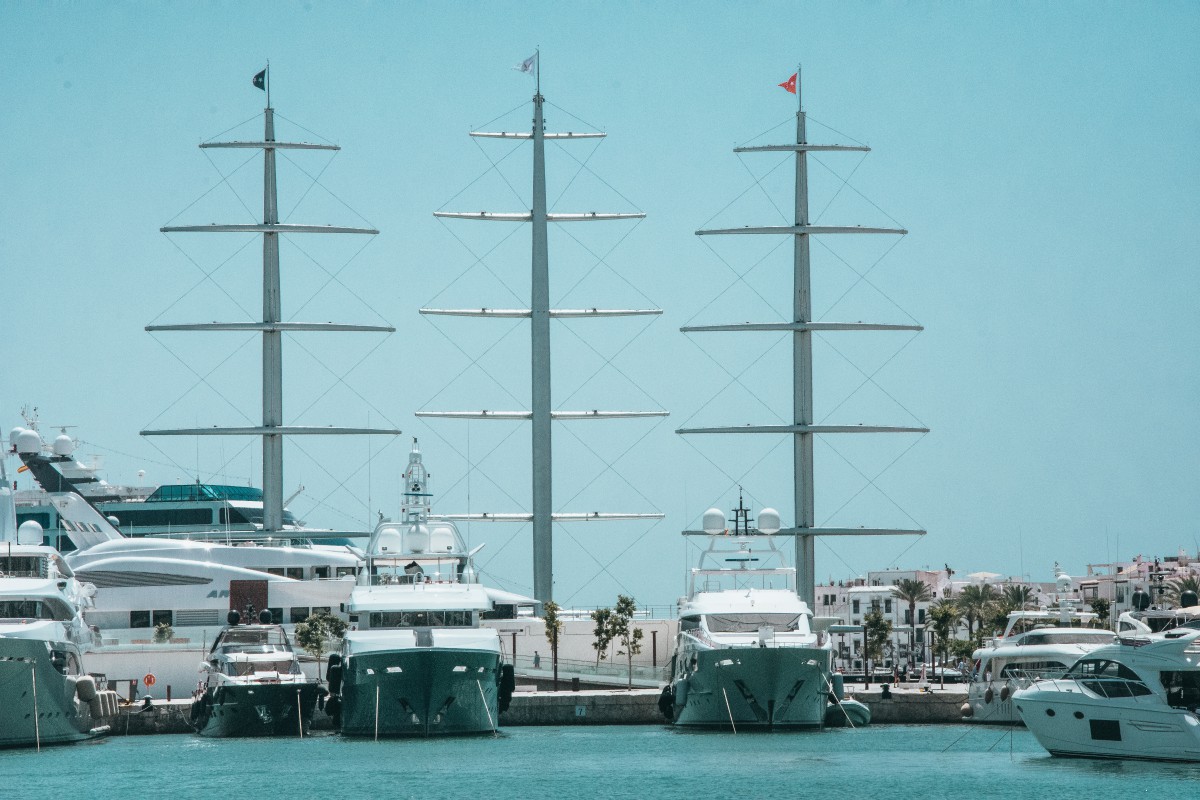Management companies discuss communication with crew
We spoke with Marianne Danissen and Louise Holloway about communication with junior crew members…
Communication with crew on board is of course paramount for any management company looking after a client's vessel. The majority of captains, chief officers, head chefs and other senior staff normally enjoy a fair share of communication with their management company, but what about the junior members? Do bosuns, stewardesses and deckhands get to enjoy the same luxury of knowing they can go to their management company with any quarrels or suggestions? We spoke to Marianne Danissen, of Camper and Nicholsons, and Louise Holloway of Sarnia Yachts, to find out more…
On the topic of communication, Danissen explained, “I would say at first that we speak very often with Captains and Head of Departments, and far too little with crew in general, that’s a fact. We normally speak with crew when we go on board to perform internal audits, and also during courtesy visits. Our visits from managers on board are always well received and a great opportunity to connect and check if all is going well or even sometimes reassure or guide the crew as well. I still think it is not as often as we would like. It was also much easier pre-covid as people would receive post and come and pick it up in our office so we would meet more regularly, that has entirely stopped since social distancing.”

Although Danissen prefers face to face contact she admits this is not always possible, “These visits also are do-able with yachts which are locally moored and where we can pass by for one reason or another. But this is more complicated with yachts further afield where one would need to fly to meet.”
Louise Holloway also went on to explain some of the difficulties that arise when attempting to effectively communicate with seafarers who are often extremely busy, on the move, and operating in different time zones. For Sarnia Yachts, the main focus has been to ensure that their junior crew always have a point of contact for anything they may need.
“Coming from the yacht industry, we appreciate that it is not always possible to speak to crew by means of a call as they may be in a different time zone or on a busy charter, so we ensure that they have access to various means of contacting us should anything arise, and of course we would much rather speak to them personally if the opportunity was there. Each vessel has an allocated officer, and we always make a point of meeting as many crew as possible on our visits to our fleet, so they are able to put a face to name. I would say we speak to our captains the most to discuss any day to day issues – however we respect their responsibility how valuable their time is during peak seasons so find that email is a better way of communicating during these times – we are happy to accommodate to whatever suits the situation’

As with all communication, the medium is the message, and this was highlighted in the last edition of The Superyacht Captains Report when a number of captains said they preferred verbal over written communication when speaking with Yacht Agents. With that being said, when it comes to crew and management companies, it appears emails are often the preferred method of communication.
In recent years, communication has been one of the central themes of developing mental health care on board superyachts. Various studies and market commentators have highlighted that the unique working environment and stresses of working on board superyachts can have a significant impact on mental health. Holloway, therefore, is eager to point that while lines of communication between management and crew do exist, and that the duty of care on the part of the management companies is undeniable, more can be done to support crew through these channels, with many of the industry’s most respected managers doing exactly this.
It must be noted that not all communication between superyachts and their managers is equal. For some vessels it will be excellent and for others it will be poor, what is for certain, however, is that the industry has many channels of potential improvement and opening the channels of communication between junior crew and management can only serve to benefit the market, a lesson that other sectors would also do well to learn.
Profile links
CAMPER & NICHOLSONS INTERNATIONAL
NEW: Sign up for SuperyachtNewsweek!
Get the latest weekly news, in-depth reports, intelligence, and strategic insights, delivered directly from The Superyacht Group's editors and market analysts.
Stay at the forefront of the superyacht industry with SuperyachtNewsweek
Click here to become part of The Superyacht Group community, and join us in our mission to make this industry accessible to all, and prosperous for the long-term. We are offering access to the superyacht industry’s most comprehensive and longstanding archive of business-critical information, as well as a comprehensive, real-time superyacht fleet database, for just £10 per month, because we are One Industry with One Mission. Sign up here.
Related news

IGY Trident launches membership programme for superyacht owners
The new programme aims to “simplify and enhance” superyacht ownership through a variety of benefits
Business

Trade union reports ‘unprecedented surge’ in yacht crew memberships
In March alone, Nautilus International saw a sixfold increase in new members from the yacht sector
Crew
-016b.jpg)
Inmarsat to launch Fleet Safety
John Dodd, director of safety services at Inmarsat, hopes to change the way we think about GMDSS
Crew

DfT confirm superyacht crew do not fall under sanctions
The UK Department for Transport confirmed with Nautilus that seafarers are not within scope of sanctions
Crew

The right to be picky
The industry should move on from the idea that green crew should be thankful for their first job
Crew
NEW: Sign up for
SuperyachtNewsweek!
Get the latest weekly news, in-depth reports, intelligence, and strategic insights, delivered directly from The Superyacht Group's editors and market analysts.
Stay at the forefront of the superyacht industry with SuperyachtNewsweek




